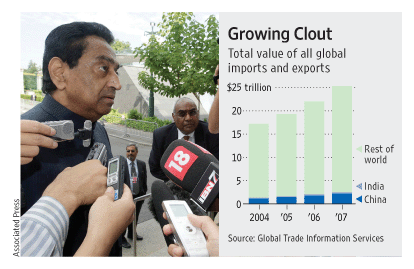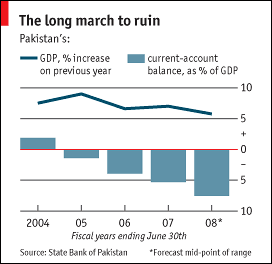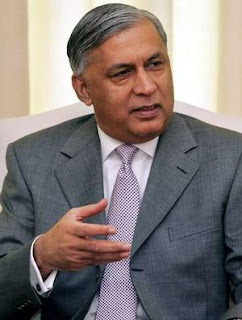India Blamed for Doha's Death

India led the charge to kill Doha, say the western government officials and commentators about the failure of the latest round of World Trade Organization (WTO) talks in Geneva to conclude a wide ranging agreement on world trade. Backing India's demands, including right to impose food import tariffs and end to agriculture subsidies in US and Europe, were Brazil, China and other developing nations in Asia. Africans were angry that their trade issues, particularly cotton, were not even discussed as the negotiators from developing giants fought pitched battles with their counterparts in developed nations. "The way the Doha Round collapsed is a preview of what we're likely to see in other negotiations," said Kimberly Elliott, a senior fellow for the Center for Global Development, a Washington think tank, told the Wall Street Journal. "Emerging markets [such as China and India] are taking a big role," she said, sometimes elbowing out even poorer nations. Other im

